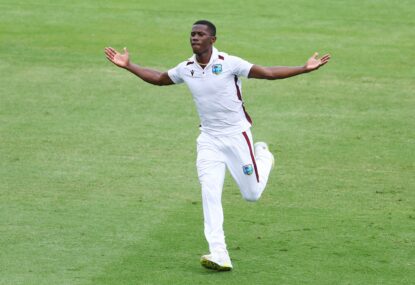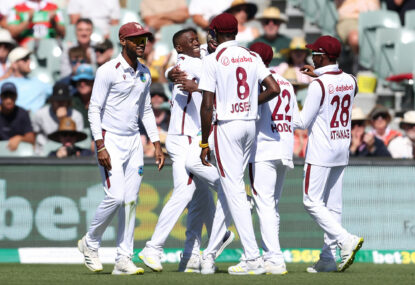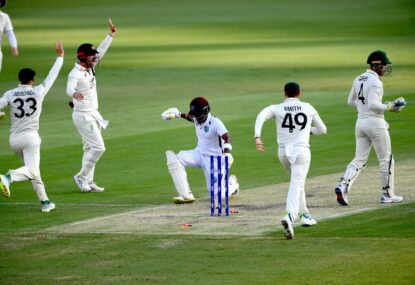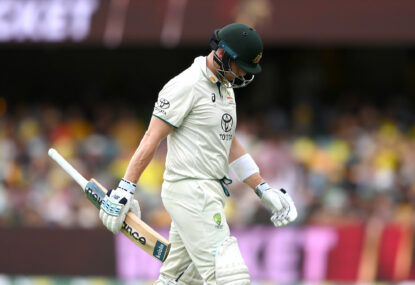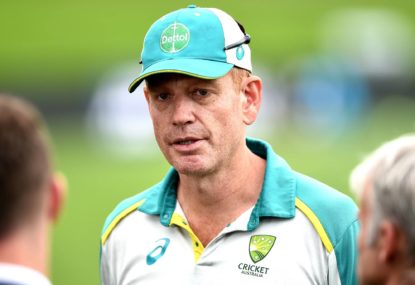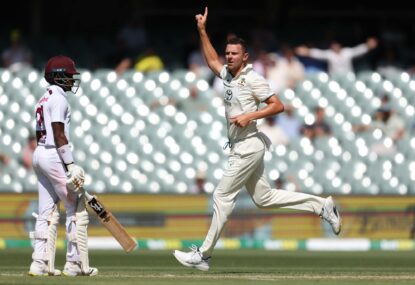It really only feels like a few months ago that Australian cricket fans were on edge about the relative elasticity of Michael Clarke’s hamstring, but the 2019 Cricket World Cup starting later this month confirms the harsh reality that Clarke’s hammy lost national interest four years ago.
And perhaps because the last World Cup was played on our shores is the main reason why the memories remain fond and so deeply ingrained. Winning it obviously helps, too.
For the record, the 2015 event featured fourteen teams playing 49 games across fourteen venues in Australia and New Zealand. 26 matches were played in Australia, in Adelaide, Brisbane, Canberra, Hobart, Perth, Sydney, and with the final in Melbourne, while 23 matches were played in New Zealand, in Auckland, Christchurch, Dunedin, Hamilton, Napier, Nelson and Wellington.
Australia beat New Zealand in the Final at the MCG, after both sides won a couple of cracking semis, over India and South Africa, respectively.
My memories remain clear because this was the first World Cup I was somewhat involved in, covering the tournament for The Roar, but also some radio and commentary work for the ABC and the combined ABC, Radio Sport and BBC coverage for the world feed. It remains an absolute career highlight.
But perhaps my fondest memory was a game I wasn’t commentating on, when the West Indies faced the might of Zimbabwe in a pool game at Canberra’s Manuka Oval. In truth, it was an otherwise unremarkable game that featured one of the most remarkable innings I’ve ever seen in cricket.
It was the day Chris Gayle smashed the first ever World Cup double hundred.
I remember it well, because I spent the first half of his innings basically rubbishing Gayle, convinced his time in one-day international cricket was over. He just wasn’t up to the speed of the modern game anymore; his footwork was minimal, and he lumbered between the wickets.
It’s worth mentioning at this point that he’s been named Jason Holder’s deputy for the 2019 World Cup!
But back to that day in Canberra, and Gayle really should’ve been given out first ball. He was hit absolutely plumb in front, given not out, and then when Zimbabwe rightly reviewed, Gayle somehow survived after Hawkeye or Eagle eye or what version of poultry-vision in use generously tracked a ball that hit him under the front knee roll to rise in trajectory and miss the bails.
In the opening overs he looked tentative, his front foot leaden to the crease, as he waved his bat across the line. It wasn’t uncommon for him to play and miss or find the field in the first four or five balls of an over, and then swing hard enough at the last ball to somehow get it into enough space and find the boundary.
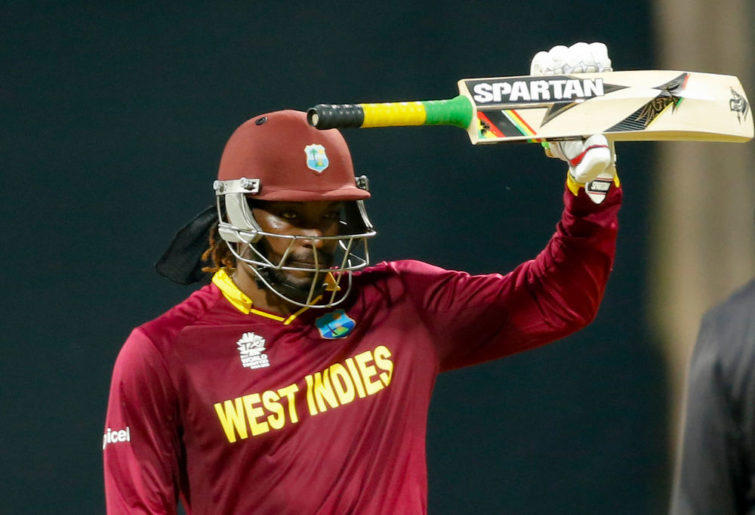
(AP Photo/Rajanish Kakade)
At one stage, he decided a slog sweep was the shot to play to a slightly back of a length ball outside the line of a second set of stumps. To say it looked ‘agricultural’ is offensive to country cricketers.
At the end of the 29th over, I was surprised to see him 89 not out, because he hadn’t looked in control at all to that point, and I’m still to this day not convinced he’d middled one by then.
In fact it was only when he crawled through the 90s, taking more than 20 balls to do it, that he finally looked like he knew what he was doing.
From there, he just went bang – literally. I’d never seen the shackles broken in such spectacular fashion, and by the end of it, Gayle’s feet were moving and he was middling everything. It was some return to form.
His first 50 came from 51 balls, and his second from 54 balls. He then went from 100 to 150 in 21 balls, before the final 50 was raised in 12 balls.
From 151*, Gayle’s last twenty balls went: 6, 4, 6, 4, 6, 6, 6, 1, 6, 1, 4, 4, 1, 1, 2, 1, 2, 2, 1, out.
His 215 came from 147 balls all told, with ten fours and a whopping 16 sixes, and Gayle and Marlon Samuels – who finished 133 not out – added a staggering 157 from the last ten overs.
The pair came together on the third ball of the match, and batted right through the innings, with Gayle dismissed on the last ball. Together, they added 372, which remains the highest partnership in the history of the 50-over game.
For the record, Gayle’s 215 was the first ever World Cup double hundred, surpassing Gary Kirsten’s 188 not out against the UAE in Rawalpindi in 1996 as the tournament’s highest score. But it lasted less than a month, with the Black Caps’ Martin Guptill smashing an unbeaten 237* from 163 balls against the Windies in Wellington later in the tournament.
Gayle’s 215 remains the fourth-highest score in ODI history, and also remains the highest ever one-day score in Australia.
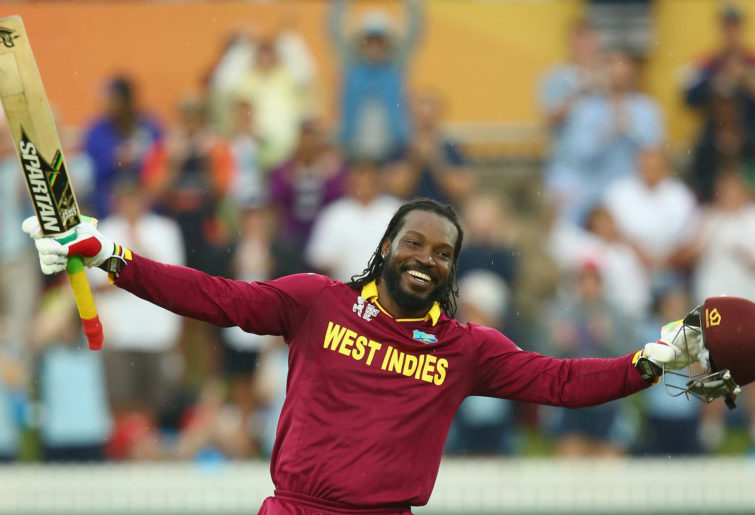
The Jamaican master blaster has a Test triple century, an ODI double century, and was the first player to record a Twenty20 international century.
Of the three World Cup games to be played in Canberra back in 2015, this game was the one with the slowest ticket sales, and was the hardest sell overall. But those who did take the punt on this game were rewarded with a rather historic performance.
It is certainly true that I didn’t rate his first hundred, but Chris Gayle’s Manuka day out isn’t likely to be forgotten for the incredible innings it turned out to be.































































































